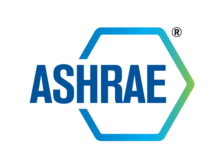Home » sustainability
Articles Tagged with ''sustainability''
EDITORIAL OPINION
Nicole Krawke: A spotlight on climate concerns
Solar goes mainstream in Super Bowl commercial.
March 10, 2022
Heat pump water heaters poised for growth in commercial markets
Energy-efficient technology becoming more mainstream.
February 18, 2022
The push for greater sustainability
Environmental concerns drive manufacturers to find innovative, smart solutions.
January 21, 2022
2021 Mechanical Engineer of the Year: Brianne Hall
Fishbeck’s Brianne Hall is leading the charge to better the engineering community through development of personal certifications.
November 11, 2021
Keep your content unclogged with our newsletters!
Stay in the know on the latest plumbing & piping industry trends.
JOIN TODAY!Copyright ©2024. All Rights Reserved BNP Media.
Design, CMS, Hosting & Web Development :: ePublishing











